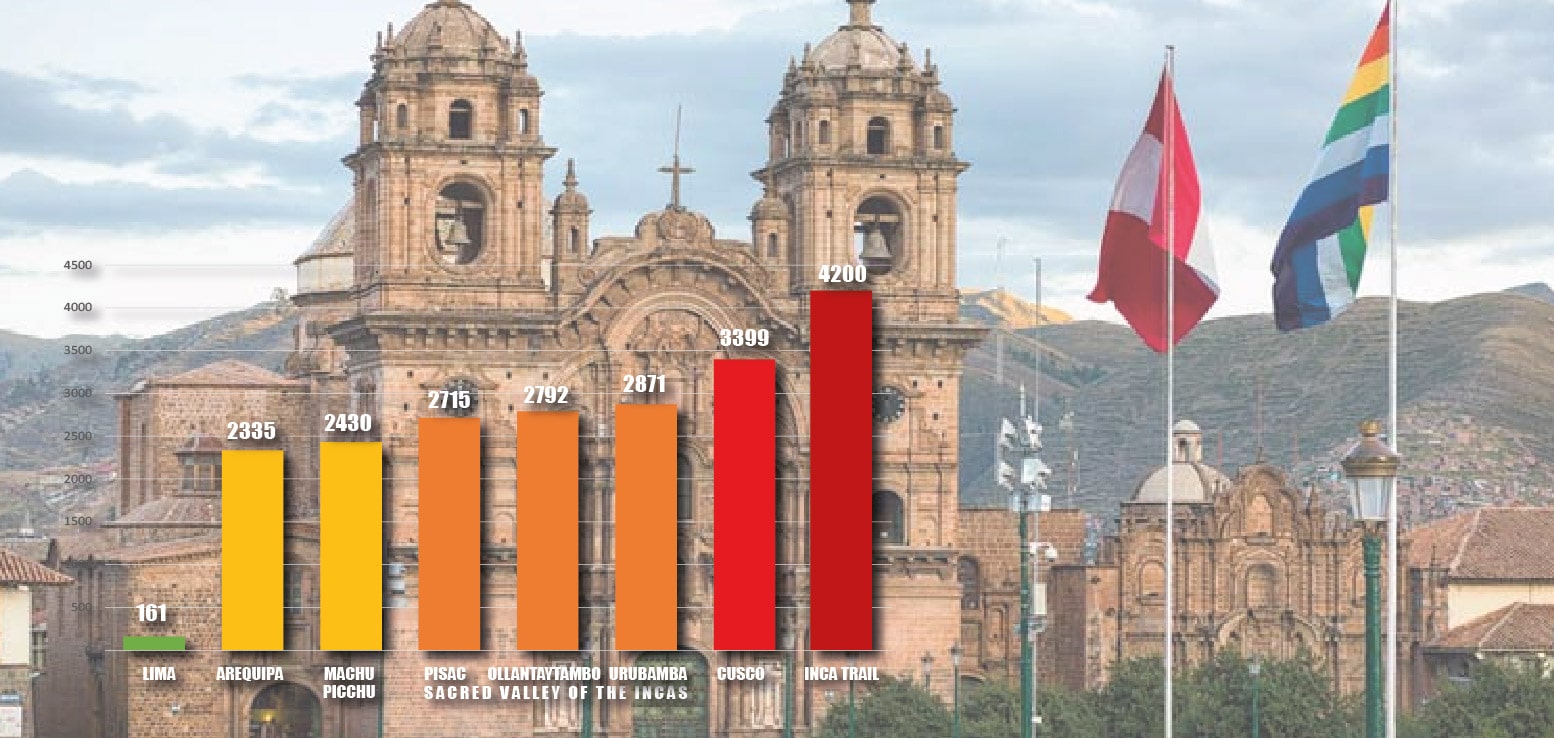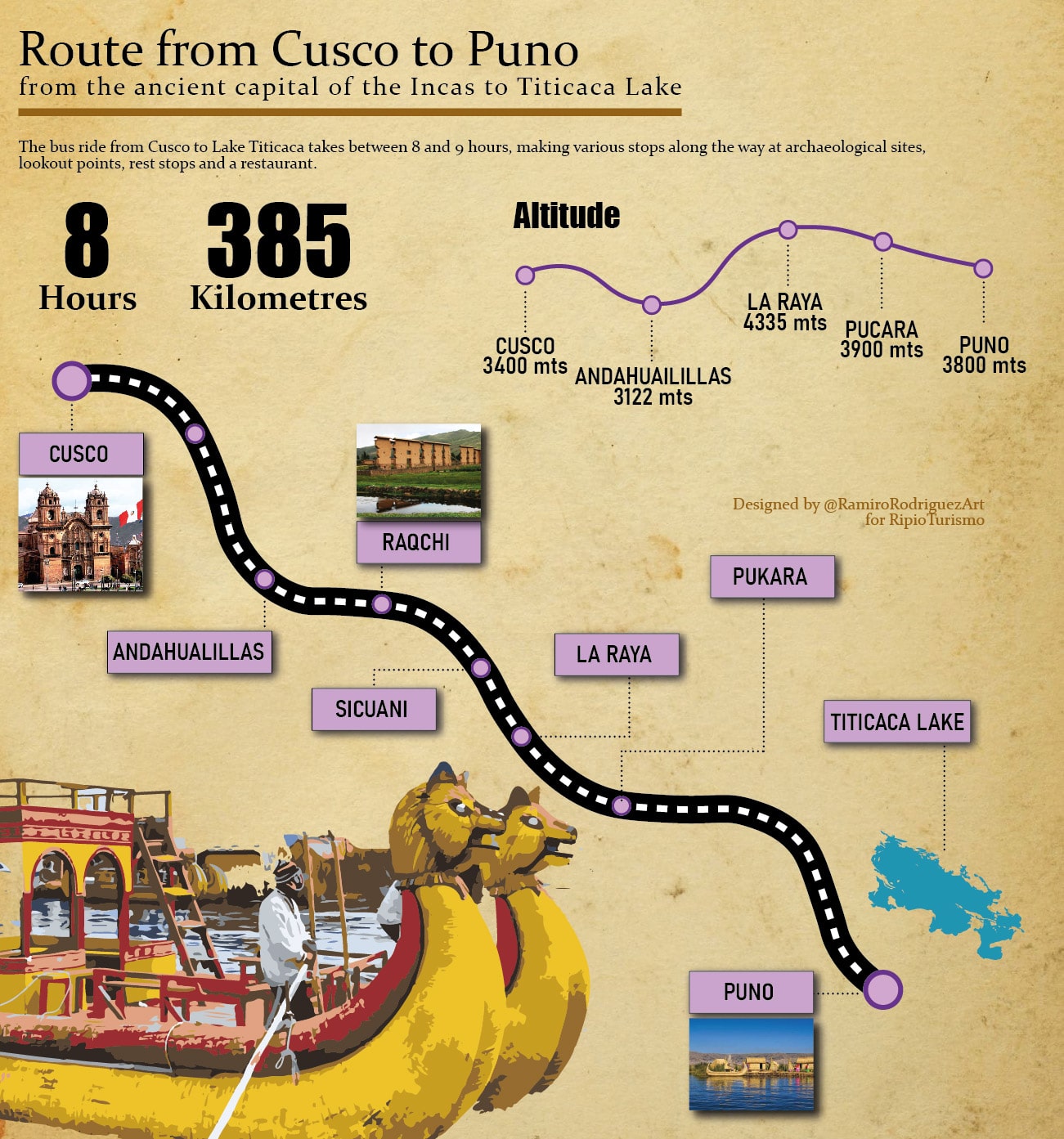Altitude in Cusco, Machu Picchu, and the Sacred Valley
Altitude is something to keep in mind when visiting this region of Peru. Many travelers may experience altitude sickness, or mal de altura in Spanish.
What is Altitude Sickness?
Also known as mountain sickness or apunamiento, altitude sickness happens when your body doesn’t adapt well to low oxygen levels at high altitudes. It usually starts at elevations above 2,500 meters (8,200 feet). The higher you go and the faster you ascend, the more likely you are to feel its effects. Luckily, symptoms tend to disappear when you return to lower altitudes.
Altitude sickness is more common in:
-
People under 50 years old
-
Those who live at low altitudes (under 1,000 meters)
The cause is hypoxia, a lack of oxygen in the body. As you climb higher, air pressure drops, and your lungs can’t absorb as much oxygen. Although hypoxia is the cause, experts are still studying exactly how it leads to altitude sickness.
Machu Picchu and Altitude Sickness
The good news is that Machu Picchu is just below the altitude where most people start to feel symptoms. The archaeological site sits at 2,430 meters (7,970 feet) above sea level, just under the usual risk zone.
However, most travelers reach Machu Picchu through Cusco, which is much higher at 3,399 meters (11,152 feet). So even if Machu Picchu is safer, you may feel the effects before getting there.
That’s why it’s important to acclimatize. Spend at least one day in Cusco before heading to Machu Picchu to reduce your chances of getting sick.
The Sacred Valley and Altitude
If you’re concerned about altitude, consider staying in the Sacred Valley first. Towns like:
-
Ollantaytambo (2,792 m)
-
Pisac (2,715 m)
are at slightly lower elevations than Cusco, which can make it easier to adjust. Many travelers choose this option if they feel unwell in Cusco.
Altitude Comparison in Peru
Let’s look at some elevation differences:
-
Lima: 161 m
-
Arequipa: 2,335 m
-
Sacred Valley towns: 2,715–2,871 m
-
Machu Picchu: 2,430 m
-
Cusco: 3,399 m
-
Inca Trail highest point (Dead Woman’s Pass): 4,200 m
As you can see, Cusco is much higher than other nearby places. A smart strategy is to fly into Cusco and go straight to the Sacred Valley, then head to Machu Picchu from there. This helps reduce the chance of altitude sickness.

Tours to Discover Peru
We offer several tours that include Peru’s most iconic spots. One of our top picks:
#551 – Lima, Nazca Lines, Cusco, Sacred Valley, and Machu Picchu
Enjoy 7 unforgettable nights exploring the best of Peru.-
Other incredible tours to visit Peru
Check some interesting tours to visit Peru:




If it’s not what you’re looking for, we have many other options to enjoy Peru and South America. Check the image below to see the complete list of tours to visit Peru
More amazing tours to visit Peru
Check our complete list of tours to visit Peru!
For more information, just contact us at info@ripioturismo.com
Thank you!














